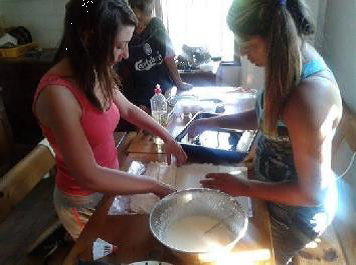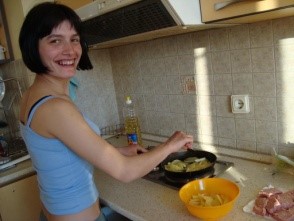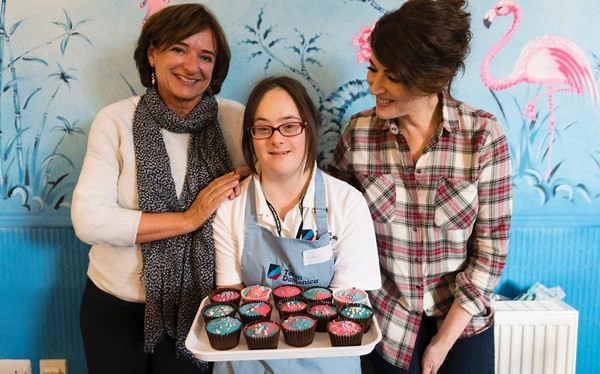Childcare in Bulgaria
Policies and Approaches since 2007
2017 article by ZOV Manager, Bulgaria – Zlatkova-Doncheva, Katerina.
International journal Knowledge. – Skopje, Global Impact and Quality Factor 1.023.15.2. p.807-813, 2016. ISSN 1857-92
On 13 September 2007 a filmed report Bulgaria’s Abandoned Children shown on BBC4 drew public attention to the conditions of institutional childcare in Bulgaria, by illustrating the home for physically and mentally handicapped parentless children in the remote village of Mogilino
The film highlighted the neglected aspects of care provision, in the lack of:
- humanitarian care: shift-work care impeding childrens’ social skills and emotional fulfilment
- remedial mental and physical therapy
- individual development: education and recreation
The controversial response to the film marks a turning point in attitudes to childcare in Bulgaria, demonstrated since in government reforms characterising the process of de-institutionalisation which adopt systems favouring community-based care services and centres.
Recent policies of the Bulgarian Government in the current transition period formulated in the National Strategy for the Child 2008-2018 have initiated major reforms in the children protection system generally.
The strategy aims to decrease the number of institutions in the short terms and close all institutions by 2025.
At the end of December 2014, the number of children living in institutions decreased from 6226 in 2011 to 2721 (Opening Doors, 2016 http://www.openingdoors.eu)
Problems arising:
- Disruptive experiences for re-located children, at risk of breaking up blood relative
- Lack of staff to meet increased staffing requirements of a larger number of smaller care units.
- Lack of adequate funding: salaries of professional care workers
- Underdeveloped professional and specialist training
- Increased demand: overall the number of children living in formal care has remained the same, despite dissolution of a number of larger homes (Opening Doors, 2016).
- Child Poverty: 51% of child population = exposure to risk and social exclusion
- Family poverty compels parents to place children in care
- Underdeveloped provision for fostering and adoption
- Budgets and Funding shortfall: t ypically, EU funding provision for building smaller homes does not extend to maintenance costs nor the provision of specialist care.
- Lack of stability, continuity and handover in process of transition
Sources and Reference
Friends of Bulgaria: Role in Context
Friends of Bulgaria’s collaboration with Partner Project providers distributes services of care for children’s welfare and quality of life throughout the country in projects such as the Childrens’ Clubs delivering activities designed to develop:
- individual self confidence and expression through music and dance
- social skills in collaborative activities and games
- personal relationships and emotional security in mentoring schemes
- expression in creative arts
- life skills eg cooking, sewing
- personal initiative in outward-bound activities – summer camps
Case Studies of the de-institutionalisation process:
- Troyan, Dalbok Dol Centre for Social Rehabilitation and Integration 2005-2013
- Lovec, Paraskeva Neikova Dom
Friends of Bulgaria’s close partnership with ZOV projects based in Veliko Turnovo region benefits from advantageous resources locally:
- Veliko University leading department in social sciences developing academic and practical professional training and qualification
- ZOV project Director, Katerina Zlatkova – university doctoral researcher
- FoB/ZOV Projects acknowledged contribution to provincial and municipal implementation of Government de-institutionalisaton policies in close collaboration with NGOs, eg OV
- FoB/ZOV Projects benefit from volunteer participation offered from local communities with heightened awareness of progressive approaches.
Assessment Monitoring
Friends of Bulgaria closely monitors Project delivery and outcomes:
- Site visits
- Regular feedback reports
- Regular dialogue with Project Partners
- Regular contextual updates from Project Partners’ Newsletters
For Example
Successful outcomes of Summer Camps
Participants and group supervisors leave with memorable impressions of formative experiences in self-awareness.
From Emily Kirov, ZOV Summer Camp 2016 volunteer, noticed how the camp offered time and place for ‘children to reflect on their lives, as seen in the letters they wrote “What it means to be a Bulgarian”, where one girl wrote about her dreams for her future’.
from Violeta, 17yrs. ZOV Summer Camp 2015 participant from Maya Centre, Veliko Turnovo: “ Baba Stana was amazing, and so great wow “
Success with Cooking – and Comparative Success Stories
Friends of Bulgaria Cooking Projects and Comparable Success Story: Nigella Lawson and Niece
 ZOV Summer Camp -2015
ZOV Summer Camp -2015
Cooking session with participants from Maya Centre, Veliko Turnovo
 Star of Hope, HalfwayHouse 2016
Star of Hope, HalfwayHouse 2016
Nadya Cooking, despite Special Needs disability
 Nigella Lawson: how her niece with Special Needs got baking
Nigella Lawson: how her niece with Special Needs got baking
A few months ago, in June, we had a wonderful party to celebrate our youngest daughter’s 21st birthday. As all her friends and close family gathered in a Greek …click here to read.